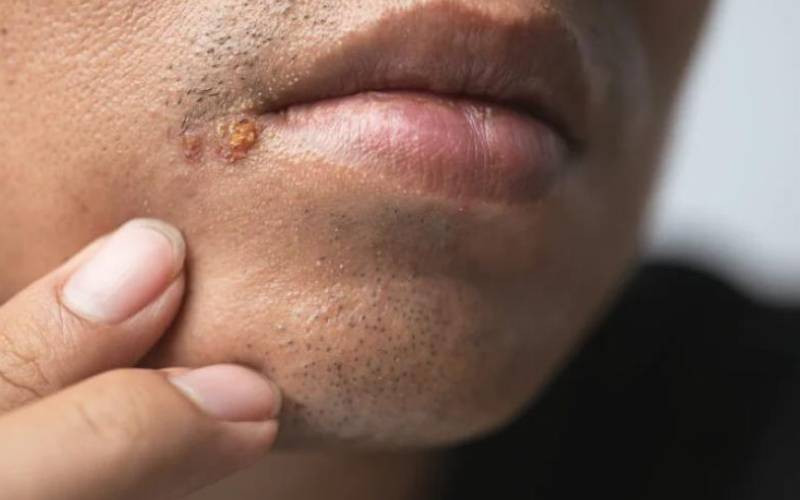
Both men and women are affected by blood disorders. However, even as blood disorders cause severe diseases in both sexes, they exhibit a unique challenge in women especially because bleeding is part of a woman's reproductive well-being.
Blood disorders have implications in preconception care, cause adverse repercussions in pregnancy, reproductive choices, management of potential and upcoming pregnancies. If you have been having nose bleeds since childhood, and your menses are heavier than normal, there is a probability that you could be living with a bleeding disorder.
Bleeding and women's reproductive health
Most bleeding disorders in women are diagnosed during a reproductive incident. According to research published in the American Journal of Preventive Medicine, pregnancy on its own alters the expression of blood disorders through the normal hematologic changes that occur during pregnancy.
This makes it important to tackle such conditions as they can influence the health status of the woman and foetus. Hereditary disorders pose a risk of potential genetic transmission to children. Additionally, medications used to combat or manage these conditions hold potential risk to conception, pregnancy, and unborn babies.
1.Von Willebrand Disease
The Kenya Haemophilia Association (KHA) regards VWD as the most common type of bleeding disorder. Patients living with this condition do not have - or have insufficient - von WIllebrand factor that helps in blood clotting.
The Centre for Disease Control and Prevention estimates that up to one per cent of the world's population suffers from VWD. It is almost always inherited but can rarely occur due to spontaneous mutation. However, due to mild symptoms, only a few know they have it.
- Samantha Power: 'We aim to enhance access to transport in emergencies'
- Wellness is beyond the absence of illness
- Former Health PS Tum defends role in Sh3.7b mosquito net scandal
- Still births remain high despite health reforms
Keep Reading
Milliam Murigi, a member of KHA and a person living with VWD, says she used to experience daily nosebleeds since childhood but dismissed them as insignificant. "My parents did not consider it a disease, but a family condition because our grandmother used to experience the same," she says. Due to VWD complications, Milliam had close monitoring during pregnancy. She was able to deliver her baby albeit prematurely, at seven months.
People with VWD exhibit the following symptoms;
- Nose bleeds that start spontaneously, occur more than five times in a year, and last more than 10 minutes
- Easy bruising
- Heavy menses that last more than seven days; soaking a pad in less than two hours, passing clots larger than the size of a regular strawberry and anaemia
- Longer than normal bleeding after childbirth, surgery, dental work, or injury
VWD comes in four types; type one is the most common form, usually presenting mild symptoms such as nosebleeds and bruising.
Type two manifests through mild to moderate symptoms. Type three has more severe manifestations, including spontaneous bleeding in muscles and joints. The fourth type is acquired and occurs mostly through medication or autoimmune diseases such as lupus.
2 Haemophilia
Haemophilia is a blood disorder that is spread through mothers to their children. It manifests as extended episodes of bleeding due to a lack of a protein that triggers the blood clotting process.
According to KHA, people with haemophilia do not bleed faster than normal, but they can bleed for a longer time.
According to Samantha Rodriguez Silva of the World Federation of Hemophilia Humanitarian Aid Programme, approximately 5,000 Kenyans suffer from haemophilia, while one in 10,000 people are born with it. Some women can live with it for years without suspecting they have a bleeding disorder.
If you need to change your tampon or pad in less than two hours or you pass clots the size of a strawberry or larger, you need to prioritise a visit to the doctor. Heavy menstrual bleeding, medically known as menorrhagia, lasts more than seven days with heavy bleeding. If left untreated, heavy and prolonged bleeding can affect your quality of life and cause anaemia.
Possible causes:
- Uterine tumours, cancer of the cervix or uterus, contraceptives including the intrauterine device, and miscarriage or ectopic pregnancy
- Hormone imbalance especially in puberty and women nearing menopause
- Bleeding disorders such as VWD
- Disorders of the liver, kidney, or thyroid; pelvic inflammatory disease, endometriosis and polyps
Treatment of heavy periods:
According to specialists from the Kenya Laparoscopic Surgery Services, treatment for menorrhagia depends on the causative factor. Some of the suggested therapies include;
Progesterone therapy; heavy flow is associated with elevated estrogen as compared to progesterone. Progesterone is used to make the endometrium - uterine wall - mature and thin, which antagonises estrogen's action that is fragile and thick. Birth control pills or hormonal IUDs that balance hormones to lighten periods or make them stop. Endometrial ablation that permanently inactivates the lining of the uterus. Uterine artery embolisation to shrink fibroids so long as one does not intend to have any more children. Myomectomy - removal of uterine fibroids. The Standard Group Plc is a multi-media organization with investments in media platforms spanning newspaper print
operations, television, radio broadcasting, digital and online services. The Standard Group is recognized as a
leading multi-media house in Kenya with a key influence in matters of national and international interest.
The Standard Group Plc is a multi-media organization with investments in media platforms spanning newspaper print
operations, television, radio broadcasting, digital and online services. The Standard Group is recognized as a
leading multi-media house in Kenya with a key influence in matters of national and international interest.











